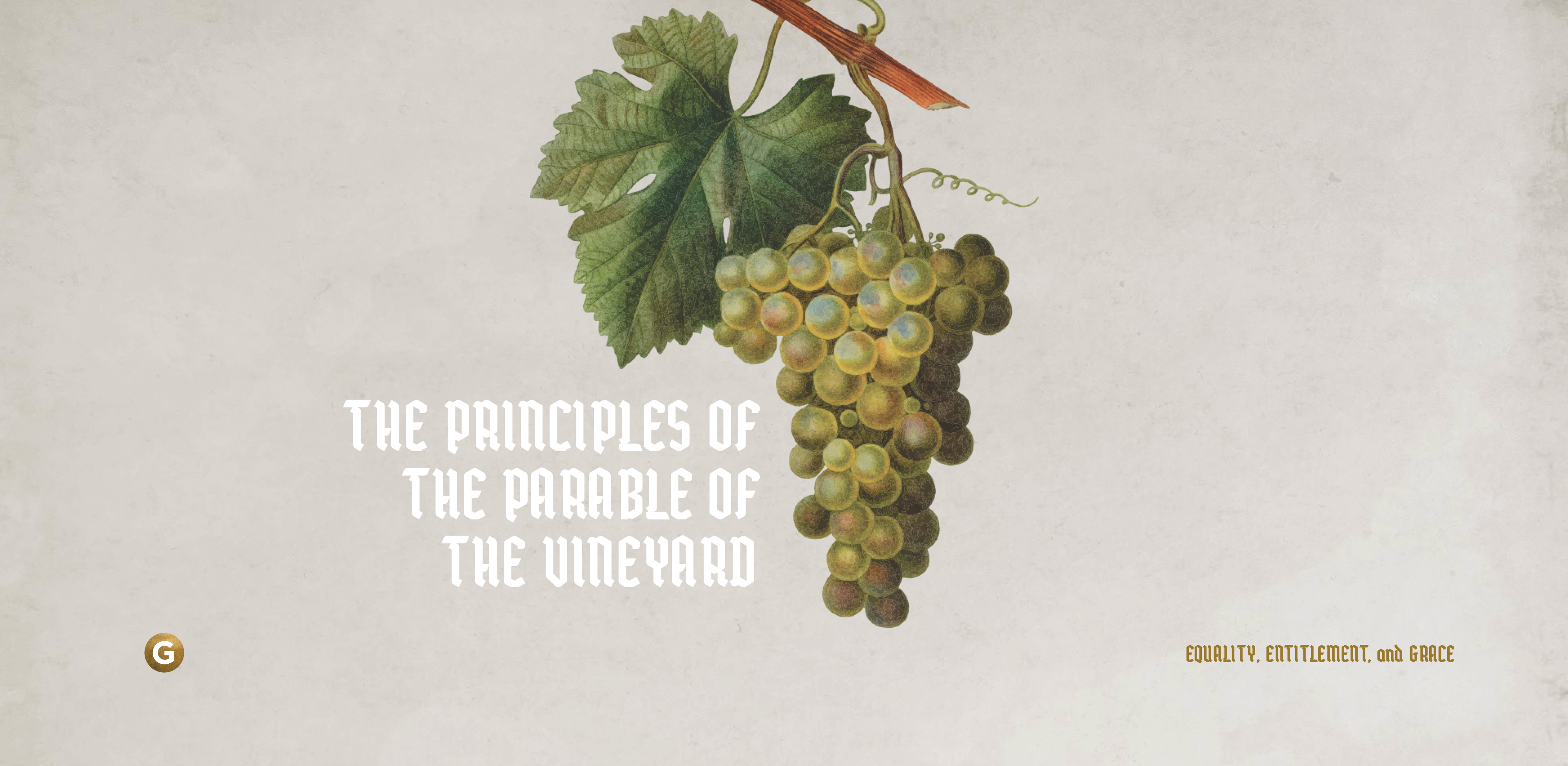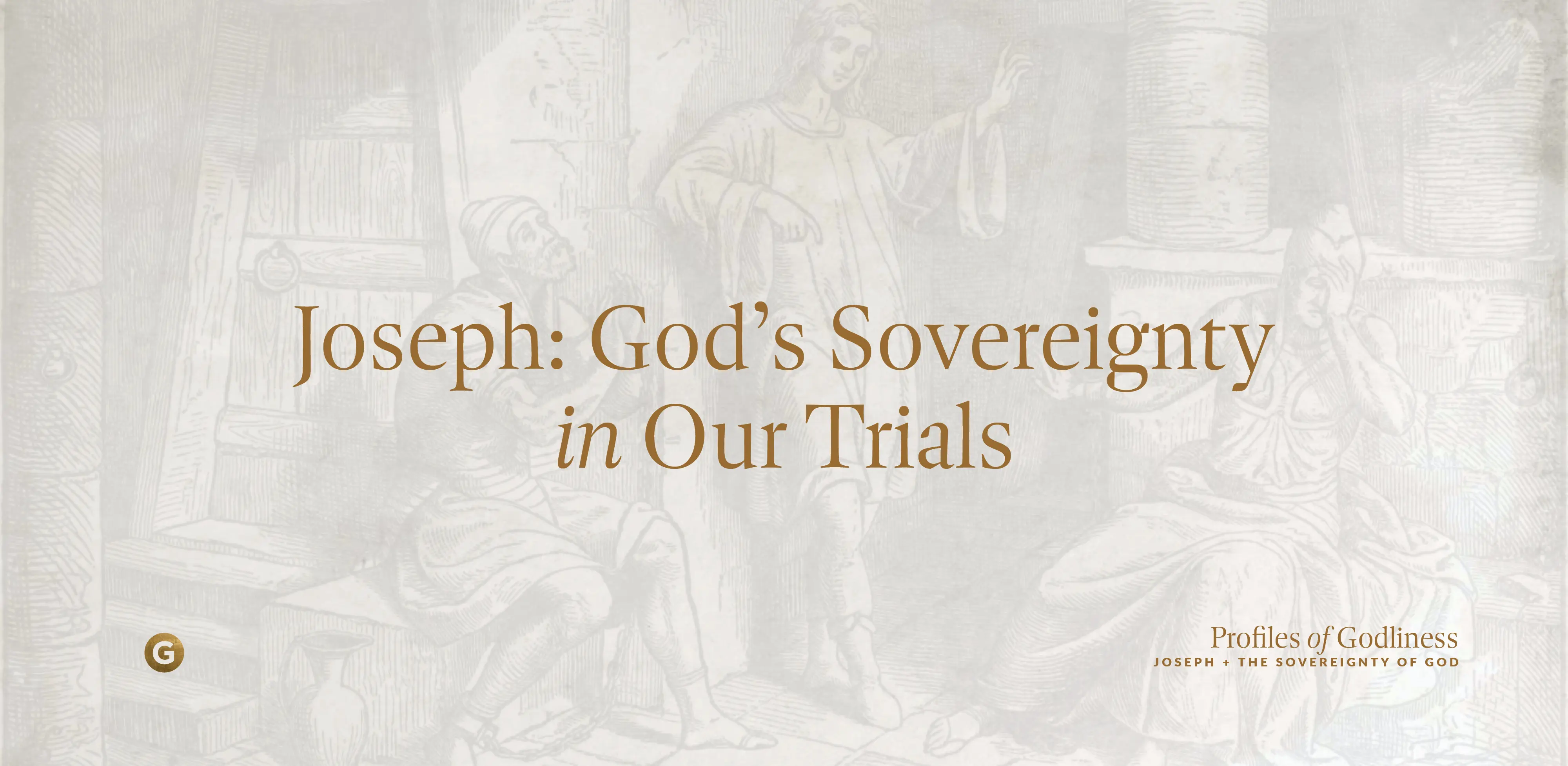The Principles of the Parable of the Vineyard
Wednesday, November 13, 2024
This post was first published December 7, 2018. –ed.
What about application?
That’s a common question from people who want more what now? and how to at the end of a sermon. Those pointers can certainly help us in our day-to-day lives. But they can also narrow our understanding of the implications of a biblical passage, and bypass the Spirit’s work in applying those truths to each believer’s specific circumstances.
The parable of the vineyard (Matthew 20:1–15) is full of such transformational truths—both explicitly and implicitly. And many of them are central to the gospel and salvation.
The parable teaches, first of all, that salvation is not earned. Eternal life is a gift that God gives purely by grace according to His sovereign will.
But the parable’s most obvious lesson is that God gives the same abundant grace to everyone who follows Christ. Tax collectors, harlots, beggars, and blind people will share in the same eternal life as those who have served God all their lives; those who have preached the gospel to thousands; and those who were martyred for Christ. Thankfully, He does not give any believer what we truly deserve.
When we get to heaven we’ll all live in the Father’s house (John 14:2). We are all “heirs of God and fellow heirs with Christ,” and we will all be glorified together (Romans 8:17). We don’t each receive a part of heaven; we all get the whole!
Elsewhere Scripture does indicate that in addition to full redemption from sin and everlasting life, there will be differing rewards the Lord is pleased to give His children for their faithfulness. At the judgment seat of Christ, “If any man’s work which he has built on it remains, he will receive a reward. If any man’s work is burned up, he will suffer loss” (1 Corinthians 3:14–15). So some will suffer loss and some will be rewarded, depending on the enduring quality of their work.
But Revelation 4:10–11 pictures what becomes of those rewards:
The twenty-four elders will fall down before Him who sits on the throne, and will worship Him who lives forever and ever, and will cast their crowns before the throne, saying, “Worthy are You, our Lord and our God, to receive glory and honor and power; for You created all things, and because of Your will they existed, and were created.”
Rewards, however, are not the issue in the parable of the laborers. Jesus is teaching a lesson about the abundant, eternal life that belongs to all who embrace Him as Lord and Savior. Heaven itself is not a reward to be earned by hard labor; it is a gracious gift, given in full abundance to all believers equally. “God is not one to show partiality” (Acts 10:34), and He makes no distinction between male and female, rich and poor, Jew and Gentile (Galatians 3:28).
Some important secondary principles are also illustrated in the parable of the vineyard. For example, we see in the imagery that it is God who initiates salvation. In the parable, the landowner went out to find the laborers in the marketplace of the world and brought them into his vineyard. God does the seeking and the saving. Our salvation is entirely His work, and that’s the main reason we have no right to make demands or set limits on what He gives to someone else. It is God’s prerogative and His alone to show mercy to whomever He chooses.
Meanwhile, He continues to call workers into His kingdom. All through human history and in every phase of the human lifespan, God is calling people into His kingdom. It’s an ongoing work. Jesus said in John 9:4, “We must work the works of Him who sent Me as long as it is day; night is coming when no one can work.” Our parable illustrates what He meant. Redemption continues until the judgment comes. And that time is coming.
God calls sinners, not the self-sufficient. He brings into His vineyard those who know their own need, not people who think they are “‘rich, and have become wealthy, and have need of nothing,’ and [they] do not know that [they] are wretched and miserable and poor and blind and naked” (Revelation 3:17). The men gathered in the marketplace looking for work were desperate, fully aware of their need. They were poor and meek, devoid of resources, begging for work—representing the poor in spirit. There was nothing complacent or self-satisfied about them—especially those who had come to the end of the day and still had nothing. That’s exactly the kind of person Christ came to seek and to save. “It is not those who are healthy who need a physician, but those who are sick; [Christ] did not come to call the righteous, but sinners” (Mark 2:17; cf. also 1 Corinthians 1:26–31).
God is sovereign in the outworking of salvation. Why does He wait till the last hour to call some? Why didn’t the landowner hire everyone in the marketplace on his first trip there? The parable doesn’t reveal the reasons. Neither do we know why God saves people at different stages of life. He sovereignly determines both when and whom He will call. But all those who are called know they are needy and are willing to work. And their willingness is a result, not the cause, of God’s grace to them. “For it is God who is at work in you, both to will and to work for His good pleasure” (Philippians 2:13).
God keeps His promise. The landowner told the first group he would give each of them a denarius, and he did. He kept his promise to those he hired later too. He said he would give them what was right—and what he gave them was more than generous. Likewise, God never gives less than He promises, and often He gives “far more abundantly beyond all that we ask or think” (Ephesians 3:20).
God always gives more than we deserve. “Every good thing given and every perfect gift is from above, coming down from the Father” (James 1:17). And everything we receive other than eternal damnation is more than we deserve. So there is no place for Christians to resent God’s grace toward others or to think He has somehow defrauded us. That very idea is full of blasphemy. In fact, that was the spirit of the elder brother in the parable of the prodigal son. He deeply resented his father’s grace toward the prodigal.
God is gracious, and we should always celebrate His grace. The parable of the laborers wonderfully exalts the principle of grace. My own response to this parable is profound thankfulness, for there are many who have been more faithful than I, worked harder than I, labored longer than I, and suffered under greater trials. There are perhaps others who have worked less, fewer years, with less diligence. But grace abounds even to the chief of sinners, and God saves all of us to the uttermost (Hebrews 7:25). That gives Him glory, and that certainly is a reason to praise Him—and rejoice along with all who have received such grace.
![]()
(Adapted from Parables)



